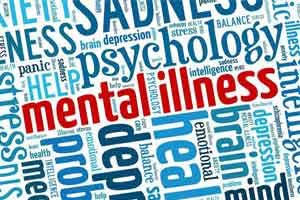- Home
- Editorial
- News
- Practice Guidelines
- Anesthesiology Guidelines
- Cancer Guidelines
- Cardiac Sciences Guidelines
- Critical Care Guidelines
- Dentistry Guidelines
- Dermatology Guidelines
- Diabetes and Endo Guidelines
- Diagnostics Guidelines
- ENT Guidelines
- Featured Practice Guidelines
- Gastroenterology Guidelines
- Geriatrics Guidelines
- Medicine Guidelines
- Nephrology Guidelines
- Neurosciences Guidelines
- Obs and Gynae Guidelines
- Ophthalmology Guidelines
- Orthopaedics Guidelines
- Paediatrics Guidelines
- Psychiatry Guidelines
- Pulmonology Guidelines
- Radiology Guidelines
- Surgery Guidelines
- Urology Guidelines
Vitamin B12 deficiency linked to mental illness in Teenagers

Vitamin B12 is a key nutrient and is one of the most essential vitamins affecting various systems of the body.It can be found in large amounts in animal products, fortified foods and dietary supplements. Some of the richest sources are liver, beef, sardines, clams and dairy products.
Vitamin B12 deficiency has been found to be associated with neuropsychiatry disorders in elderly patients ranging from depression, mania, psychotic symptoms to cognitive impairment and delirium. According to a study presented at the European Psychiatric Association (EPA) 2019 Congress, teenagers who suffer from mental illness have a higher dimension of vitamin B9 and B12 deficiency.
To determine levels of deficiency of vitamin B9 and B12, the investigators retrospectively examined the records of all child and adolescent psychiatric inpatients between 2015 and 2017 at their centre. The retrospective study was conducted on around 780 young people with psychiatric disorders by Gerard Anmella Diaz, MD, Department of Child and Adolescent Psychiatry, Hospital Clinic Barcelona, Spain.
The study demonstrated that 40% of the patients were deficient in vitamin B9 and around 20% of the patient lacked vitamin B12. 10% were deficient in both.
The researchers evaluated the eating pattern of each patient and evaluated the risk of vitamin B9 and B12 deficiency associated with it. They found that the mean vitamin B9 levels were significantly lower in females in comparison to males. Similarly, adolescents were more likely to be deficient in Vitamin B levels than children.
The researchers concluded that vitamin B levels were significantly lower in children and adolescents who have psychotic symptoms than in those without psychotic symptoms. However, no difference in vitamin deficiency was found between patients with symptoms and without psychotic symptoms.
Addressing the conference delegates the author underlined, in particular, the fact that the proportion of adolescents who are deficient in vitamin B9 and B12 is double that of children, noting that "the numbers need to change."
The author pointed out that during childhood and adolescence, the brain undergoes synaptic pruning and reconstruction and the development of learning and memory circuits and executive functions, making it particularly vulnerable. Both vitamin B9 and B12 are involved in glutathione and myelination pathways and that they have been shown to be involved in neuroplasticity and the preservation of neuronal integrity.
Deficiencies in these two vitamins lead to hyperhomocysteinemia, which has been linked to neurovascular and neurodegenerative disorders and psychiatric disorders, including schizophrenia and affective disorders, as well as cognitive impairment.
Read also: Vitamin B helps maintain concentration in psychosis
Both vitamin B9 and B12 are involved in glutathione and myelination pathways and that they have been shown to be involved in neuroplasticity and the preservation of neuronal integrity.
Deficiencies in these two vitamins lead to hyperhomocysteinemia, which has been linked to neurovascular and neurodegenerative disorders and psychiatric disorders, including schizophrenia and affective disorders, as well as cognitive impairment.

Disclaimer: This site is primarily intended for healthcare professionals. Any content/information on this website does not replace the advice of medical and/or health professionals and should not be construed as medical/diagnostic advice/endorsement or prescription. Use of this site is subject to our terms of use, privacy policy, advertisement policy. © 2020 Minerva Medical Treatment Pvt Ltd